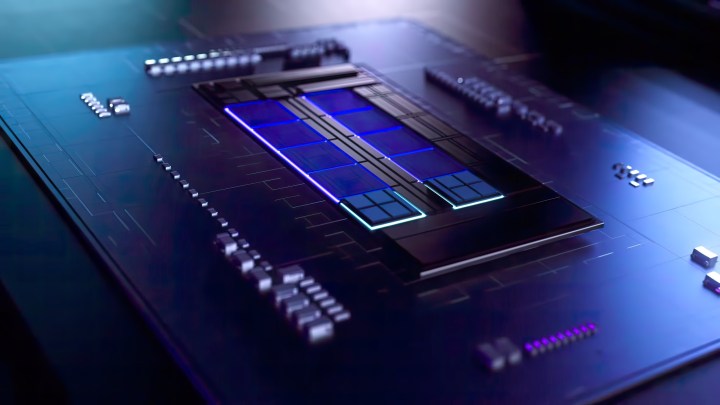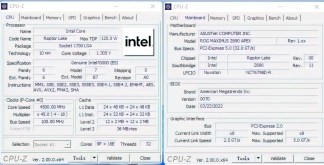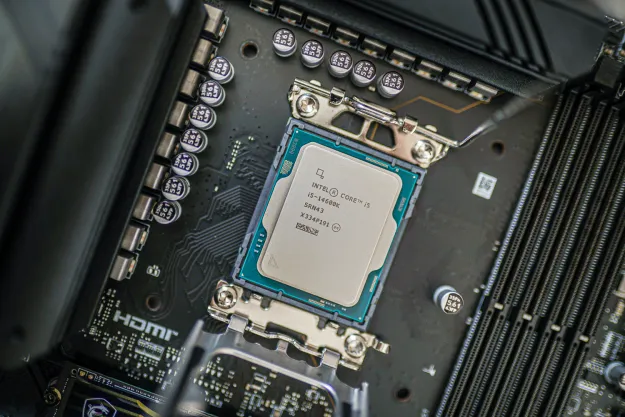New unofficial benchmarks of the upcoming Intel Raptor Lake emerged, and this time around, the news is quite exciting. It seems that Intel’s 13th Gen processor might turn out to be a real multi-tasking beast, leaving its predecessor far behind.
The user who leaked the benchmarks admits that the chips are still not quite ready to go, but even so, they manage to outperform Intel Alder Lake by up to 28%.

This round of Intel Raptor Lake rumors comes from Lordzzz, a Chiphell forum member, who posted a picture of the chip along with some benchmarks and CPU-Z screenshots. The photograph of the chip features the whole thing without any blurring, including the Intel Confidential label as well as the variant code Q0D8. This stands for the engineering sample 1 (ES1), but the user has also provided benchmarks of the (even more impressive) ES3 sample, although that wasn’t accompanied by a photo of the chip. Both samples are of the same processor, the Core i9-13900K.
According to the leaker, the ES1 chip still has a fair share of problems that Intel will have to work its way through prior to the launch of the processors in the next few months. The CPU fails to hit the required frequency check marks and has some compatibility issues. As of right now, it also doesn’t support DDR4 memory, but that’s because of BIOS support on 600-series motherboards — that will come with time.
Despite all these hiccups, the ES1 chip still manages to shine in terms of specs and performance. The flagship Intel Core i9-13900K will boost the core count by a whole lot, delivering 24 cores and 32 threads, which breaks down to 8 performance (P) cores and 16 efficient (E) cores. It’s also said to feature a much larger combined cache of 68MB. Engineering samples are unable to hit the expected clock speeds just yet, but once we get there, rumors say that Intel Raptor Lake might hit the mythical 6GHz mark.
While we only have screenshots of the ES1, the leaker also teased the performance of the ES3 and compared the two. In this test, the ES1 chip maxes out at just 4.0GHz across all cores, but the ES3 hits as high as 5.5GHz in single-core and 5.3GHz in all-core boost clocks. ES1 chips also can’t be overclocked, but that feature is present in ES3. ES3 chips also have an impressive level of support for DDR5 RAM, and as Wccftech teases, they might support up to DDR5-8000. Let’s just hope that DDR5 RAM will start getting cheaper as the tech becomes more widespread when AMD Ryzen 7000 processors also add support for it, especially since Zen 4 will only support DDR5 and not DDR4.

Now, let’s take a look at some benchmark scores. In a CPU-Z benchmark, the ES1 chip scored 611 points in single-core and 13,014 points in multi-core tests. The ES3 shows marked improvement over its predecessor, hitting 880 points and over 18,000 points, respectively. Comparing the two to the Alder Lake flagship Core i9-12900K shows that the ES1 chip loses in single-core, but wins by 12% in multi-core. However, the ES3 truly shines, outpacing the Core i9-12900K by 7% in single-core operations and a whopping 28% in multi-core. It also beats the AMD Ryzen 9 5950X by 34% in single-threaded and 21% in multi-threaded performance.
It’s certainly nice to see the Intel Raptor Lake chip in action, seeing as the first benchmarks we’ve gotten had even worse clock speeds than those of the ES1 sample. Intel still has a bit of time to iron out the final issues before the chips start rolling out later this year, so things are only bound to improve.
Editors' Recommendations
- 4 CPUs you should buy instead of the Intel Core i9-13900K
- Intel just launched the ‘world’s fastest’ CPU
- Intel may have a monster new CPU coming soon
- I tested Intel’s new overclocking tool, and it does AI all wrong
- Apple’s M3 Max appears to keep up with Intel’s top desktop CPU



